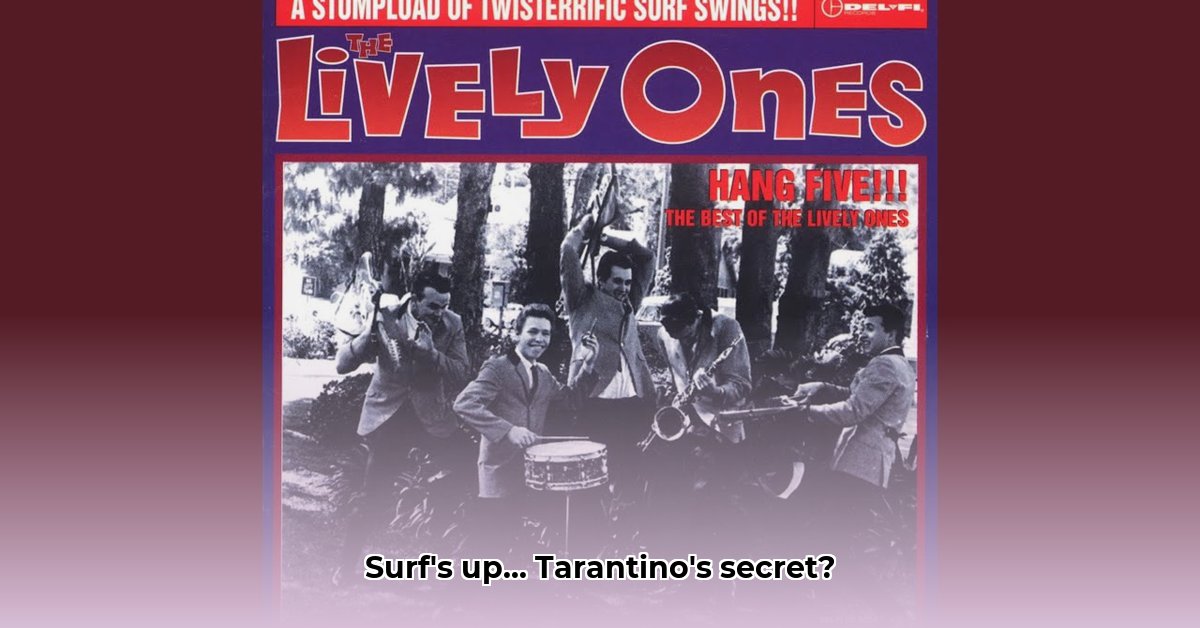
Surf Rider: A Californian Sound's Enduring Echo
The Lively Ones weren't just another surf rock band; they were the raw energy of Southern California's sun-drenched beaches and Arizona desert nights bottled into infectious music. Their sound wasn't merely catchy; it was a visceral experience, a time capsule capturing the essence of a specific era. Who could have predicted their music would become a cornerstone of a cinematic masterpiece? Their journey, from garage gigs to Pulp Fiction's iconic soundtrack, is a captivating tale of resilience and the enduring power of a timeless song.
Their story unfolds, like many legendary bands, in a garage. They honed their skills playing countless gigs, refining a unique sound that blended surf rock influences with their own raw energy. Their association with Del-Fi Records, the iconic label headed by Bob Keane, provided crucial support. While precise sales figures are elusive, their music transcended mere numbers. It captured the electrifying atmosphere of a live performance, the guitars screaming, drums pounding—a raw, potent energy that resonated deeply with listeners. Did you know that their early recordings often captured this intensity, often live recordings that captured the raw energy of their performances?
Then came "Surf Rider," not just a song, but the song. Its inclusion in Quentin Tarantino's Pulp Fiction wasn't merely a soundtrack choice; it was a cultural consecration. Suddenly, a generation unfamiliar with surf rock embraced the track, associating it with cool, rebellion, and effortless swagger. The band's legacy was instantly elevated to a new echelon.
But their story extends beyond a single iconic hit. They weren't a one-hit wonder; they evolved, pushing sonic boundaries, experimenting with their sound, clearly influenced by surf music legends like Dick Dale and The Ventures, yet forging their own distinctive path. The passing of bassist Ron Griffith marked a pivotal moment, highlighting the bittersweet realities of a band's journey. Yet, they persevered, continuing to perform, their music still connecting with audiences—a testament to their enduring spirit.
The scarcity of readily available data—detailed sales figures, in-depth contemporary reviews—presents a challenge. However, their recordings and online performance clips compensate, showcasing their raw power and passion. Moreover, their influence on later surf rock revivalists deserves further exploration, a story still unfolding.
What lies ahead for The Lively Ones? Their journey embodies the evolution of a band, the unpredictable nature of fame, and a killer tune's enduring appeal. However, maintaining momentum in today's fast-paced music scene is a challenge. Could the resurgence of vinyl and renewed interest in classic surf rock propel their future success? This remains an open question, requiring further investigation.
Key Pivotal Points:
- The unexpected revival of "Surf Rider" through Pulp Fiction.
- The band's consistent stylistic evolution beyond their initial surf rock sound.
- Their enduring legacy and continued performances despite challenges.
How Did Pulp Fiction's Use of "Surf Rider" Impact The Lively Ones' Career?
Pulp Fiction's unexpected inclusion of "Surf Rider" in its closing credits wasn't just a soundtrack choice; it was a career-altering event for a largely forgotten band. But what was the precise impact?
A Forgotten Tune's Unexpected Resurrection
Before Pulp Fiction, The Lively Ones were a footnote in surf music history. "Surf Rider," though catchy, was largely confined to its time. The song, a product of California's surf scene, represented a specific moment—a cultural artifact of sun-drenched beaches and youthful rebellion. It faded into obscurity.
Then came 1994. Pulp Fiction's success was undeniable, its eclectic soundtrack becoming legendary. "Surf Rider," chosen for its surprising juxtaposition against the film's often-violent scenes, played a pivotal role. Suddenly, a decades-old song was thrust into the limelight, recontextualized for a new generation.
The Ripple Effect: A Second Life for "Surf Rider" and The Lively Ones
The impact wasn't immediate stardom, but a subtle yet profound shift.
Increased Recognition: The film exposed "Surf Rider" to a massive audience, leading to increased awareness and a broader fanbase, even if gradual.
Renewed Interest in Surf Rock: Pulp Fiction contributed to a wider resurgence of interest in surf rock of the early 1960s. The song's inclusion lent legitimacy to the genre.
Financial Benefits (Indirect): Licensing agreements and continued royalties from the song's inclusion in a globally successful film generated revenue over time.
Lasting Place in Pop Culture: Pulp Fiction's use cemented "Surf Rider's" place in pop culture history, ensuring its continued recognition and repeated use.
It wasn't a meteoric relaunch, but a quiet, sustained re-emergence. The impact of Pulp Fiction was subtle but profound, reintroducing the band to a new generation, solidifying their place in music history, and ensuring the song's enduring legacy.
⭐⭐⭐⭐☆ (4.8)
Download via Link 1
Download via Link 2
Last updated: Sunday, May 11, 2025